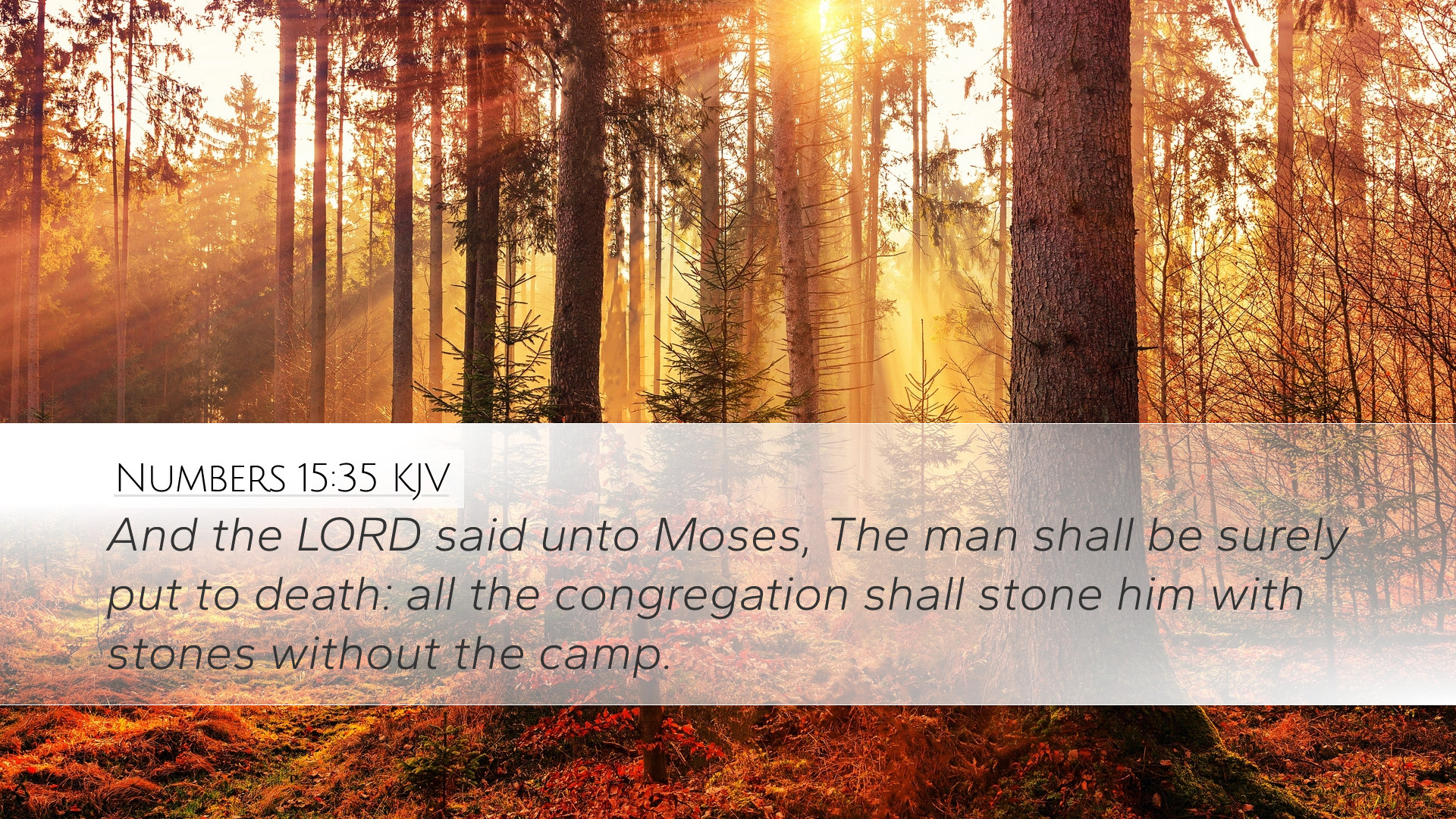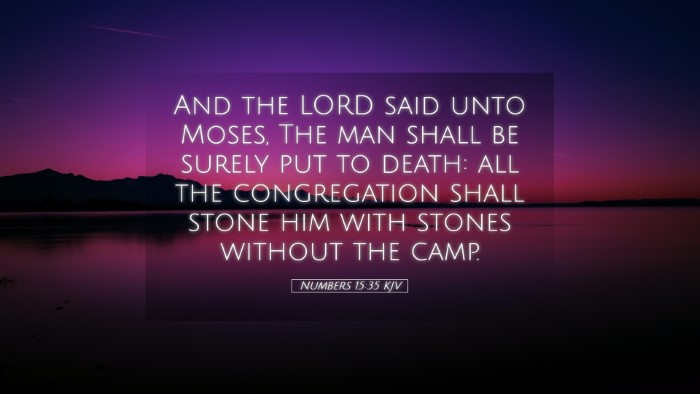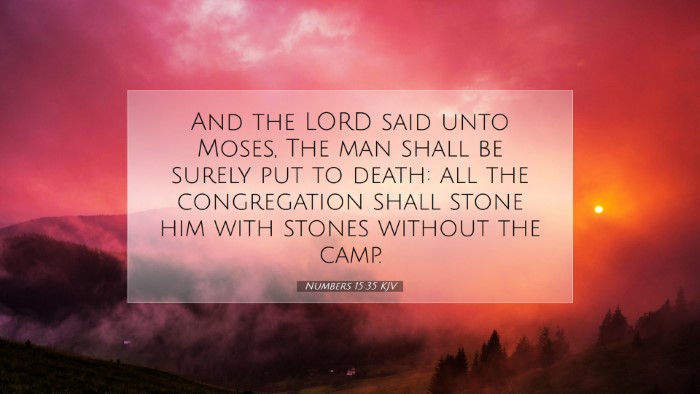Commentary on Numbers 15:35
Numbers 15:35 states: “And the Lord said to Moses, ‘The man shall surely be put to death; all the congregation shall stone him with stones outside the camp.’” This verse presents a striking instance of the seriousness with which God regards disobedience to His commandments. The punishment of death for the violation of the Sabbath command is not merely indicative of the legal system of ancient Israel but also reveals crucial theological implications that resonate throughout Scripture.
Context and Setting
The backdrop of this incident is set within the broader narrative of the Israelites in the wilderness, as they are instructed on how to live as God's chosen people. The specific violation in this context involves the gathering of sticks on the Sabbath, an act which, while seemingly minor, is treated with utmost gravity by God, emphasizing His holiness and authority over the observance of His laws.
Understanding the Violation
Albert Barnes notes the particularity of this act: “The man gathering sticks meant to provide for himself and was disregarding the rest God commanded.” This highlighted a personal choice over communal sanctification, which may appear trivial but is significant in the greater context of maintaining a covenant relationship with God. The act of working on the Sabbath directly contravened the command that was integral to Israel's national identity and covenant with God.
Theological Reflections
This verse serves as a stark reminder that God's commands are not arbitrary but are designed for the welfare of His people. Adam Clarke emphasizes that “This punishment stemmed not just from law but from a God who desires holiness among His people.” It reflects God’s overarching desire for purity and obedience amongst His people which, if taken lightly, can lead to societal decay.
The Collective Responsibility of the Congregation
The instruction that “all the congregation shall stone him with stones” suggests a communal aspect to the enforcement of the Law. Matthew Henry succinctly points out, “The congregation’s involvement signifies that sin must not be tolerated within the community of faith.” This illustrates the vital role of community in upholding divine standards, underscoring the importance of shared responsibilities in maintaining righteousness.
Portrayal of Justice and Mercy
While the punishment seems severe by contemporary standards, the verse encapsulates God’s justice. It is essential to recognize that alongside justice, mercy is also a vital aspect of the divine character. Clarke elaborates on this dichotomy: “The severity here is a preventive measure; it enforces the need for respect towards God’s law, thus maintaining order and holiness in worship.”
Application for Today
The principle found in Numbers 15:35 extends beyond its historical context to challenge modern readers about their own attitudes towards God's commands. The decisive action against transgression invites self-examination in light of God's holiness. Pastors and theologians are reminded that God's standards remain unchanging, and believers are called not only to respect them but embody them in their lives.
- Reflection on Authority: Recognize God as the ultimate authority in moral and ethical matters.
- Community Accountability: Reflect on how the church community can uphold biblical standards and hold one another accountable.
- Personal Integrity: Encourage personal adherence to commitments made before God concerning His holiness.
Conclusion
Numbers 15:35 offers profound insights into the nature of God's law, the significance of community, and the gravity of sin. It calls believers not only to conform to His commandments but to do so with an appreciation for the holiness and justice they represent. Understanding this passage helps form a robust theological framework that appreciates both justice and mercy, compelling each believer towards a deeper relationship with God through obedience.


